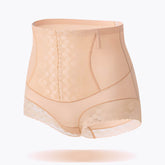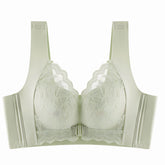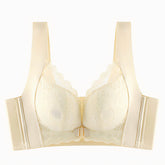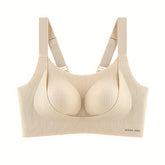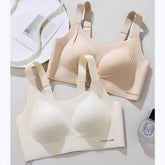10 Healthy Habits For Women!

Today I’m giving you 10 healthy habits that I think will drastically improve your life. I promised you that I’d deliver not only femininity content but also lost female education overall. I seldom hear anyone discuss what I’m about to say, even though it’s all pretty important stuff, so let’s get started.
By the way, this is not medical advice—this is just educational content, but it is backed by empirical research, and I’ll leave my sources down below in the description box.
Number one: Understand your feminine biological clock.
My mother is a few decades older than me, and she did not know this information until I told her about it this week. She really wishes she had known sooner. If you already track and understand the four phases of the menstrual cycle, then please feel free to skip the next chapter, but if you don’t, I highly recommend that you begin. You will find effortless consistency, motivation, and results when you live in accordance with your feminine biological clock.
Sadly, we have been essentially guided, marketed, and educated to follow the 24-hour cycle of the male body, which has caused internal conflict for a lot of us. We beat ourselves up for our lack of stringent consistency, but our natural biological clock is not consistent. It undergoes many fluctuations throughout the month. You would never expect the moon to rise and set each day the same as the sun, yet that is what we’re taught and widely expected to do.
Just like the moon, cyclical women are not designed to show up full every single day. We wax and wane throughout our four distinct phases each month, and therefore our nutrition, fitness, and self-care should be adjusted to each phase. Additionally, the menstrual cycle has sort of been implicitly demonized. There are actually articles online about stopping your period or ovulation, and so many of us have been sold the idea that long-term menstrual suppression via birth control is completely benign. Thus, we’ve been taught to believe that having a consistent menstrual cycle is not necessary for overall health.
But how strange is it to completely stop a natural bodily process, not just for a month, but for years? It is such a bizarre concept, and yet it’s widely held as normal. We are failing women by acting like our menstrual cycle is not necessary. This then makes women think that it’s not only unbeneficial to have a consistent menstrual cycle but also unbeneficial to even be aware of it. It’s important to understand the hormonal changes that naturally occur in the female body during the menstrual, follicular, ovulatory, and luteal phases, and use that understanding to your advantage. This way, you know why you may feel more tired, energetic, frisky, less frisky, easily annoyed, etc.
Tracking and understanding your menstrual cycle can drastically transform your life. Being aware of your hormonal fluctuations and what that means for your energy levels, mood, libido, nutritional needs, exercise needs, etc., means you can take care of yourself categorically better. I mean, it can legitimately transform how you take care of yourself. I highly recommend taking notes because this is really important information that I did not know until I was 22 years old—years after getting my first period. When I finally did begin to track my cycle and implement the necessary changes and accommodations, my life was so positively impacted.
Your menstrual cycle begins with the first day of your period and ends when your next period begins. The menstrual cycle starts with the menstrual phase, which is roughly day one through five of your cycle. This is when you get your period and bleed. The process of menstruation is actually pretty tough on your body; your energy levels and hormones are at their lowest. A lot of women think that during their period, their hormones are raging, but they’re actually pretty low, and that’s what causes you to feel really drained during your period and potentially lose your cool. Your body during your menstrual phase most likely needs more rest than usual, so please don’t feel guilty for prioritizing rest and replenishment during this time. You are not weak nor lazy for doing this at all. In fact, increasing rest during your menstrual phase increases your energy levels for the rest of the month and helps you recover and replenish your body for the busy month ahead.
In terms of exercise during your menstrual phase, if you are doing a very strenuous workout because your hormones are at their lowest, the only thing that may be getting you through your intense workout is cortisol, the stress hormone. Instead of getting all of those amazing benefits from your workout, you very well may lose muscle mass rather than gain it, and massive amounts of cortisol can wreak havoc on your body. Instead, doing gentle exercise is much better, or perhaps just prioritizing rest if you really feel in need of it.
In terms of nutrition, this is a good time to re-mineralize and replenish your body. While I completely think that indulging in your cravings a little bit is not a bad thing, you do want to pack in mostly nutrient-dense foods to properly replenish your body. Eating a lot of processed carbs and sugar, like chips and ice cream, very well may make you feel more drained and exacerbate your PMS. I highly suggest nutrient-dense eating that can support the energy-intensive process of menstruation. Also, because of the blood loss during your menstrual phase, it’s crucial to get iron-rich foods like beans, kelp, pumpkin seeds, oats, dark leafy greens, grass-fed meat, eggs, and salmon. It’s also important to ensure your intake of vitamin C is sufficient because this enables iron to be absorbed into your body more easily. Eating vitamin C-rich foods like citrus is highly suggested. Also, if possible, including some cooked, fermented, sprouted, or activated foods is great because they may be easier to digest. Warm broths and miso soups are also great and comforting, soothing your uterus. Lastly, liquid aminos and sea salt can help to restore electrolytes and minerals. I also recommend eating hydrating foods like watermelon, grapes, and cucumber, which can help to reduce bloating.
Roughly days six through twelve is your follicular phase. Follicles are the sacs in your ovaries that contain eggs. This part of your cycle includes the maturation of your ovarian follicles to prepare for one of them to release during ovulation. Here, your energy and estrogen are rising, and you may feel more optimistic, creative, and excited to take on new things, dive into new tasks, and plan for the month ahead. You may experience difficulty focusing on more tedious or mundane tasks because of your proclivity to feel more creative during this phase. You may find it more enjoyable to multitask during the follicular phase. Perhaps try to save some of the tasks that you may not be able to focus on right now for your luteal phase, which we’ll get into soon. Your creativity and motivation for new things may eventually start to wane as you transition out of this phase, but when it does, I suggest not quitting or throwing those projects away. Instead, take a break and rest, and remind yourself that your creativity and motivation will cycle back around. I used to do this a lot—I’d wake up feeling inspired and creative, start to tackle a new project, and then a couple of days later, feel so uninterested and give up on it. Little did I know that motivation and creativity would soon be back. I really wish I had known that sooner, so I would understand why I felt more and less motivated and creative out of the blue.
In terms of exercise, consider this phase your warm-up phase. I’d suggest gradually increasing the length and intensity of your workouts as you near ovulation, but listen to your body as estrogen rises at a different rate for each of us.
In terms of nutrition, during your follicular phase, it’s still important to eat your minerals and iron because of the loss of minerals and iron during your period. If you feel really tired during this phase of your cycle, it could be due to not resting enough during your period or not properly fueling yourself. Since you lose so much iron during your period, and iron oxidizes your tissues, it makes sense to feel fatigued during the beginning of this phase. So continuing to eat iron-rich foods like meat, dark leafy greens, and beans could help mitigate that feeling of fatigue. Also, the rising estrogen in your body may make you feel less hungry since estrogen is an appetite-suppressing hormone, so you may gravitate toward lighter meals during your follicular phase.
Roughly days thirteen to fifteen of your cycle is your ovulatory phase. It begins three to four days before you ovulate, and most women ovulate on or around day fourteen of their cycle. Here, your estrogen, testosterone, mood, energy, and libido are at their peak, even though this is the shortest phase. You may want to plan a trip somewhere new and exciting and work on some hard tasks that require extra energy. Some less-than-desirable indicators that you’re in your ovulatory phase may include breast tenderness, headaches, and cramping. You may also feel some pain on either side of your abdomen when your egg is released from your ovary, but this should not be a lot of pain.
In terms of exercise, your strength, capacity, and recoverability are heightened. Feel free to push yourself to your limits and set records. Do something hard and sweat! High-intensity interval training might be really enjoyable during this phase.
For nutrition, the recommended ovulatory phase foods are packed with fiber to detoxify increased hormones, like fruit, beans, avocado, oats, and dark vegetables like carrots, beets, and broccoli. Foods with anti-inflammatory properties that can prepare and support your body through ovulation since ovulation is an inflammatory process include nuts, fatty fish, and juicy fruits. A good amount of proteins and fats can help sustain energy and hormone levels as your estrogen and testosterone dip after ovulation, and a lot of cruciferous vegetables are highly recommended because they are powerful hormone detoxifiers.
Your luteal phase is roughly days sixteen to twenty-eight of your cycle. Here, progesterone and estrogen levels begin to rise and then quickly fall if conception does not occur. You may feel more anxious, pessimistic, irritable, sensitive, and impatient as you get closer to your period. You may notice an increased desire to stay in or be by yourself. And you may have a decreased tolerance for uncomfortable clothing and irritating people, so I suggest comfortable clothes and solo activities to reduce irritability and encourage mindfulness. Avoid caffeine, alcohol, processed foods, sugar, and dairy during this time to reduce bloating and mood swings and drink plenty of water.
You may also be interested in organization, cleaning, completing projects, finishing up to-do lists, etc. You may find yourself focusing more easily and being less creative and better able to accomplish monotonous tasks that you may have procrastinated on or had difficulty focusing on during your follicular phase.
In terms of exercise, as your energy levels decrease during this phase, I suggest decreasing your exercise intensity. However, as soon as you finish menstruating, your energy will begin to rise again, so this is just a temporary decrease in energy levels. Yoga, pilates, walking, and swimming are great ways to exercise without being too harsh on your body.
When it comes to nutrition during the luteal phase, eating the same foods as those recommended in the follicular phase is highly suggested. Also, eating foods rich in magnesium, like dark chocolate, pumpkin seeds, spinach, and figs, is great to avoid PMS symptoms. Foods rich in B vitamins are also great because they are highly effective in helping to support and detoxify your liver. They also support energy and neurotransmitter production. Foods rich in B vitamins include seafood, eggs, seeds, and dark leafy greens. A high-fiber diet is also important during this phase, but some women experience digestive changes during the luteal phase that make it harder to digest foods, so listen to your body and eat what makes you feel your best.
I recommend the book Period Power by Maisie Hill and the book In the FLO by Alisa Vitti if you are interested in learning more about your menstrual cycle and how to optimize your health based on the phase of your cycle. Understanding this cycle will allow you to achieve and maintain your goals so much more effectively. Once you begin to live in accordance with your biological clock, you may never go back to living your life as if you have a 24-hour cycle, and you’ll feel better and more satisfied because of it.
Number two: Eat more whole foods.
Eating a diet primarily based on whole foods rather than heavily processed or refined foods can have numerous benefits for your overall health. Whole foods are packed with essential nutrients like vitamins, minerals, fiber, and antioxidants, which support your body’s functions, boost your energy, and help prevent chronic diseases.
Refined and processed foods, on the other hand, often lack nutrients and contain unhealthy additives, sugars, and unhealthy fats. These foods can lead to weight gain, energy crashes, and a higher risk of various health issues, such as heart disease and diabetes. In contrast, whole foods like fruits, vegetables, whole grains, lean proteins, and healthy fats provide your body with the nutrients it needs to thrive.
Transitioning to a whole foods-based diet can also improve your digestion, help stabilize your blood sugar levels, and support a healthy gut. It’s not about being perfect all the time but making gradual changes toward eating more whole, nutrient-dense foods that will ultimately lead to a healthier, more balanced life. Remember, it’s not about deprivation; it’s about nourishing your body with the best possible fuel, which will leave you feeling more energized, clear-headed, and ready to take on the day.
Number three: Get enough sleep.
Sleep is one of the most important factors in overall health and well-being, yet it’s often one of the most neglected aspects of our daily routine. Consistently getting enough quality sleep is essential for your physical health, mental clarity, and emotional stability. Aim for 7-9 hours of sleep per night, and prioritize it as a non-negotiable part of your daily routine.
Sleep is crucial for the repair and recovery of your body. During deep sleep, your body heals and regenerates tissues, builds bone and muscle, and strengthens your immune system. Sleep also plays a vital role in brain function, helping to consolidate memories, process information, and support emotional regulation.
Lack of sleep can lead to a host of negative outcomes, including impaired cognitive function, mood swings, increased stress, weight gain, and a higher risk of chronic conditions like heart disease, diabetes, and depression. On the other hand, consistently getting enough sleep can improve your focus, creativity, and problem-solving skills, while also enhancing your mood and overall quality of life.
To improve your sleep quality, establish a relaxing bedtime routine, limit screen time before bed, create a comfortable and dark sleep environment, and avoid stimulants like caffeine and nicotine in the hours leading up to bedtime. Prioritizing sleep will not only improve your health but also make you more resilient to the challenges and stresses of daily life.
Number four: Exercise regularly.
Regular physical activity is essential for maintaining a healthy body and mind. Exercise has numerous benefits, including improving cardiovascular health, strengthening muscles and bones, boosting mental health, and increasing longevity. Whether it’s through structured workouts like going to the gym, running, yoga, or just incorporating more movement into your daily routine, the key is consistency. Find an activity you enjoy, and make it a regular part of your life.
Exercise releases endorphins, which are natural mood boosters that can help reduce stress and anxiety. It also improves blood flow to the brain, which enhances cognitive function, memory, and focus. Additionally, regular exercise can help regulate your sleep patterns, boost your energy levels, and improve your overall sense of well-being.
Start with small, achievable goals, and gradually increase the intensity and duration of your workouts. Remember, any movement is better than none, so find what works for you and stick with it. Whether it’s a daily walk, a yoga class, or a workout at the gym, the important thing is to keep moving and make exercise a regular part of your life.
Number five: Stay hydrated.
Hydration is vital for your body’s overall function, yet it’s easy to overlook. Water is essential for regulating body temperature, lubricating joints, transporting nutrients, and eliminating waste. Dehydration can lead to fatigue, headaches, digestive issues, and decreased cognitive function, so it’s important to make sure you’re drinking enough water throughout the day.
The general recommendation is to drink at least eight 8-ounce glasses of water a day, but this can vary depending on your body size, activity level, and the climate you live in. To ensure you’re staying hydrated, carry a reusable water bottle with you, and sip on water throughout the day. If you struggle to drink enough water, try infusing it with fruits, herbs, or a splash of lemon for added flavor.
Remember that hydration isn’t just about drinking water; you can also hydrate through foods like fruits and vegetables, which have high water content. Staying properly hydrated will help you feel more energized, improve your skin health, support digestion, and overall, help your body function at its best.
Number six: Practice mindfulness and stress management.
Mindfulness is the practice of being present in the moment and aware of your thoughts, feelings, and surroundings. It’s a powerful tool for managing stress, improving mental clarity, and enhancing emotional well-being. By incorporating mindfulness practices into your daily routine, you can better manage stress, reduce anxiety, and increase your overall sense of calm and balance.
There are many ways to practice mindfulness, such as meditation, deep breathing exercises, or simply taking a few moments each day to be present and observe your thoughts and feelings without judgment. Find what works for you, and make it a regular part of your daily routine.
Stress management is also crucial for maintaining your overall health. Chronic stress can lead to a host of physical and mental health issues, including anxiety, depression, heart disease, and a weakened immune system. By practicing mindfulness and finding healthy ways to manage stress, you can improve your resilience and overall well-being.
In addition to mindfulness, consider incorporating other stress-management techniques into your routine, such as exercise, journaling, spending time in nature, or engaging in hobbies you enjoy. The key is to find what works for you and make it a regular part of your life.
Number seven: Cultivate positive relationships.
The relationships you have with others play a significant role in your overall well-being. Positive, supportive relationships can provide you with love, encouragement, and a sense of belonging. They can also help you navigate life’s challenges and provide a source of joy and fulfillment.
On the other hand, toxic relationships can drain your energy, negatively impact your mental health, and create unnecessary stress. It’s important to surround yourself with people who uplift and support you, and to set boundaries with those who do not.
Take time to nurture the relationships that are important to you, and make an effort to connect with others regularly. This could be through spending quality time with loved ones, reaching out to friends, or participating in social activities that align with your interests.
Remember, it’s not about the quantity of relationships, but the quality. Focus on building and maintaining positive relationships that contribute to your overall happiness and well-being.
Number eight: Practice gratitude.
Gratitude is the practice of acknowledging and appreciating the positive aspects of your life. It’s a powerful tool for shifting your mindset and improving your overall happiness and well-being. By regularly practicing gratitude, you can train your brain to focus on the positive aspects of your life, which can lead to increased feelings of joy, contentment, and fulfillment.
You can practice gratitude in many ways, such as keeping a gratitude journal, where you write down things you’re thankful for each day, or simply taking a few moments each day to reflect on the positive aspects of your life.
Gratitude can also be expressed through actions, such as showing appreciation to others, giving back to your community, or simply taking the time to enjoy the small moments of joy in your day-to-day life.
Incorporating gratitude into your daily routine can have a profound impact on your overall happiness and well-being. It can help you develop a more positive outlook on life, improve your relationships, and increase your resilience in the face of challenges.
Number nine: Limit screen time and digital distractions.
In today’s digital age, it’s easy to get caught up in the constant barrage of information and distractions from screens. Whether it’s scrolling through social media, checking emails, or binge-watching TV shows, excessive screen time can take a toll on your mental and physical health.
Spending too much time on screens can lead to eye strain, disrupted sleep patterns, increased stress, and decreased productivity. It can also contribute to feelings of anxiety, depression, and social isolation. To reduce the negative impact of screen time, set boundaries for your digital use and be mindful of how much time you spend on screens each day.
Consider implementing a digital detox or setting aside specific times of the day to disconnect from your devices. This could be through activities like reading a book, spending time in nature, or engaging in hobbies that don’t involve screens. By limiting your screen time, you can improve your focus, reduce stress, and enhance your overall well-being.
Number ten: Prioritize self-care.
Self-care is the practice of taking intentional actions to care for your physical, mental, and emotional well-being. It’s about recognizing your needs and making time for activities that nourish your body, mind, and soul. Self-care is not a luxury; it’s a necessity for maintaining a balanced and healthy life.
Self-care can take many forms, from physical activities like exercise and healthy eating to mental and emotional practices like mindfulness, journaling, or spending time with loved ones. It’s about finding what works for you and making it a regular part of your routine.
Remember that self-care is not selfish; it’s about taking care of yourself so that you can show up as your best self in all areas of your life. Prioritize self-care by scheduling regular time for activities that bring you joy, relaxation, and fulfillment. This could be through hobbies, spending time in nature, taking a bath, or simply taking a few moments each day to breathe and relax.
By prioritizing self-care, you’ll be better equipped to handle the stresses of daily life and maintain a sense of balance and well-being.
I hope these tips help you create a healthy, balanced, and sustainable lifestyle that supports your overall well-being.



